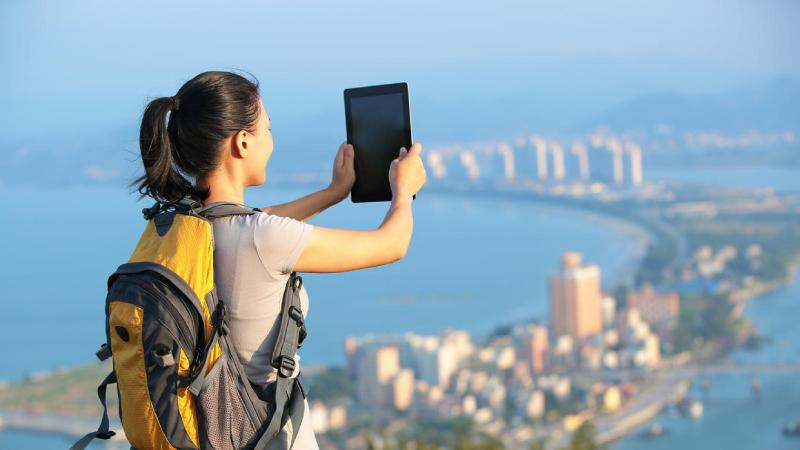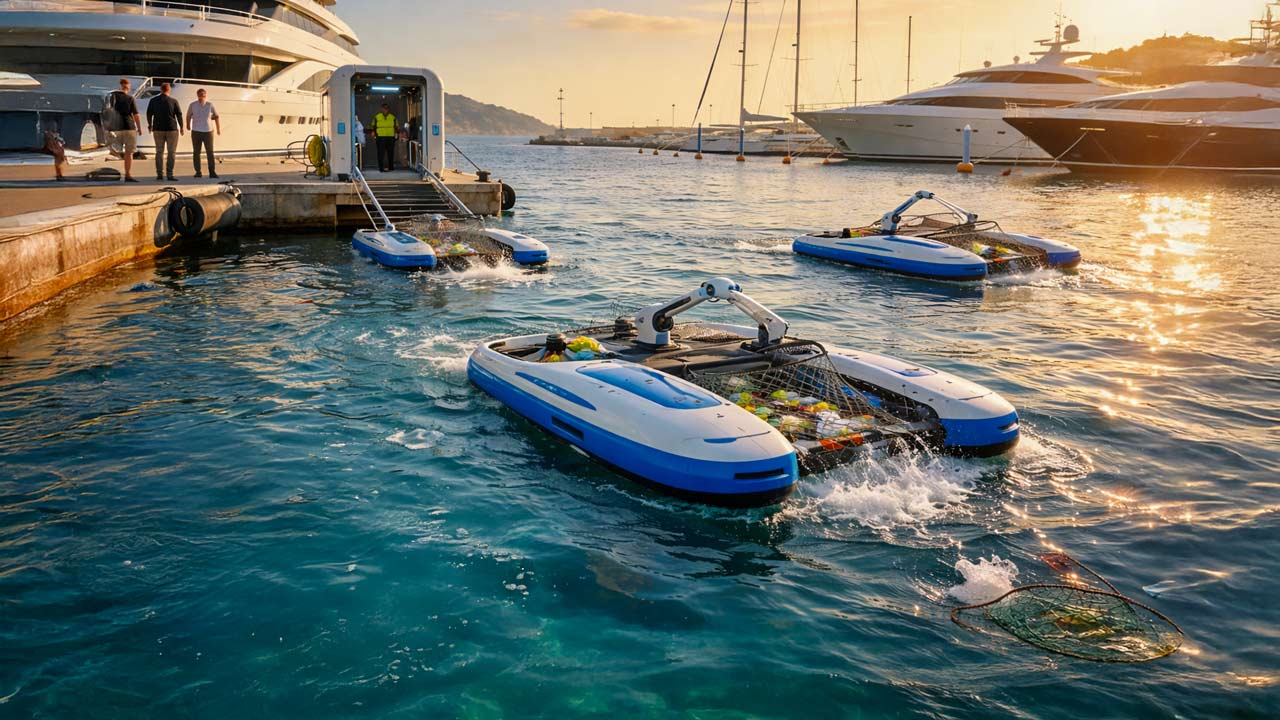Towards the tourism of the future
The tourism sector is one of the cornerstones of the Spanish economy. Digital transformation is essential to attract increasingly hyper-connected tourists who are looking for stays with greater added value.
That is why Smart Cities are revolutionizing our way of life and in turn are transforming the tourist experience as we move into the future, offering personalized, increasingly immersive, and sustainable experiences, such as the following:
1. Travel planning and booking
Traditionally, planning a trip required consulting printed guidebooks and booking through physical travel agencies.

Travelers today can organize their itineraries and make reservations from the comfort of their homes, using digital platforms.
Apps and websites allow users to compare prices, read reviews and book accommodation and activities in a matter of minutes.
2. Augmented and Virtual Reality
Augmented reality (AR) and virtual reality (VR) are beginning to have a significant impact on tourism. Museums and historical sites in Spain are using AR to provide interactive guided tours, allowing visitors to see virtual representations of how these places looked in the past.

VR, on the other hand, allows potential tourists to experience destinations in an immersive way from their homes, which can influence their travel decision.
3. Opportunities for the tourism sector in Spain
Digitalization offers several opportunities to improve the competitiveness of the tourism sector.
Among the most outstanding include:
Tailoring the traveler experience
Artificial intelligence (AI) and data analytics enable tourism companies to offer personalized experiences to their customers.
Recommendation systems, for example, can suggest activities and destinations based on travelers' past preferences and behaviors.
✅ This not only improves customer satisfaction but can also increase revenue by cross-selling services.
Improving sustainability
Technology can also play an essential role in promoting more sustainable tourism. Digital platforms can inform travelers about sustainable practices and destinations that prioritize environmental conservation.
Smart resource management solutions can also help cities and regions better manage the flow of tourists and minimize environmental impact.
Operational efficiency
Digitalization allows tourism companies to optimize their operations and reduce costs. The automation of administrative processes, the implementation of customer relationship management (CRM) systems and the use of Big Data technologies for strategic decision making are just a few examples of how technology can improve operational efficiency.
Conclusion
Digitalization is transforming the tourism sector, offering a wide range of opportunities to improve the traveler experience, increase operational efficiency, and promote more sustainable tourism.
Digital platforms and solutions will enable all industry players to interact with tourists digitally and smartly. Promoting a better relationship between tourists and residents, as well as increasing the competitiveness and sustainability of tourism destinations through digital and smart solutions.
To this end, we must have an appropriate strategy that combines technological innovation and training, so that Spain can consolidate its position as a world leader in digital tourism, offering unforgettable experiences to travelers from all over the world.
 Hybrid Cloud
Hybrid Cloud Cyber Security & NaaS
Cyber Security & NaaS AI & Data
AI & Data IoT & Connectivity
IoT & Connectivity Business Applications
Business Applications Intelligent Workplace
Intelligent Workplace Consulting & Professional Services
Consulting & Professional Services Small Medium Enterprise
Small Medium Enterprise Health and Social Care
Health and Social Care Industry
Industry Retail
Retail Tourism and Leisure
Tourism and Leisure Transport & Logistics
Transport & Logistics Energy & Utilities
Energy & Utilities Banking and Finance
Banking and Finance Smart Cities
Smart Cities Public Sector
Public Sector





